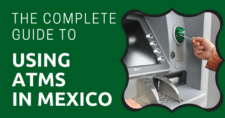
Perhaps you’ve already conducted your research and are aware that Mexico presents excellent opportunities for starting a business. Its strategic location near the United States, Canada, and its position within Latin America offer numerous advantages. Many American companies have, in fact, recognized these benefits and have established nearshore operations in Mexico.
As a foreigner, you have the ability to start a company in Mexico. In this article, we will provide more information about the requirements and what it entails to run your own business in Mexico, so you have a clearer understanding of what to expect. Before embarking on this entrepreneurial journey, it’s highly advisable to seek advice from a notary public, a lawyer, an accountant, or all of these professionals to ensure a smooth and compliant business setup
This article will take approximately 19 minutes to read. Don't have the time right now? No worries. You can email the ad-free version of the article to yourself and read it later!
Disclaimer: This article may include links to products or services offered by ExpatDen’s partners, which give us commissions when you click on them. Although this may influence how they appear in the text, we only recommend solutions that we would use in your situation. Read more in our Advertising Disclosure.
Contents
- Can Foreigners Start a Business in Mexico?
- Types of Companies to Start in Mexico
- Shelf Company
- Requirements for Setting Up a Company
- 8 Steps to Register a Company in Mexico
- Step 1: Find Your Niche and Appoint Company Representatives
- Step 2: Find a Notary Public
- Step 3. Choose a Company Name
- Step 4: Prepare the Deeds or Articles of Incorporation
- Step 5: Signing the Constitutive Act at the Notary Public
- Step 6: Applying for a VAT number
- Step 7: Applying at the Mexican Public Registry
- Step 8: Get a License
- Cost of Starting a Business in Mexico
- Do I Need Hire a Lawyer to Set Up a Company in Mexico?
- Do I Need to Hire an Accountant?
- Running Your Company
- My Experience on Setting Up a Company in Mexico
Can Foreigners Start a Business in Mexico?
Before delving into the requirements for starting a company, including the types of companies and how to register, it’s essential to know that foreigners can establish a company in Mexico with 100% foreign ownership.
However, there are certain markets that have restrictions regarding the participation of foreigners. There are specific businesses that foreigners are not permitted to operate in Mexico, including currency exchange, petroleum, electricity, and handling radioactive materials.
Moreover, certain economic activities have special regulations governing foreign participation, often limiting it to a maximum percentage, such as 10% or 49%. Examples of these activities include fishing, broadcasting, and domestic air transportation services.
Therefore, it’s crucial to consult with a lawyer to determine what your options are and ensure compliance with Mexican regulations before selecting your business niche.
Types of Companies to Start in Mexico
There are two major types of companies that are used for business in Mexico, each should have a minimum of two stakeholders to open:
There are two major types of companies commonly used for business in Mexico, and both require a minimum of two stakeholders to establish.
- Sociedad Anónima, S.A.: This is a stock corporation, frequently used by Mexican and foreign investors with large-scale operations.
- Sociedad de Responsabilidad Limitada, S. De R.L.: This refers to a limited liability company, often used by small businesses.
So, if you’re looking to start a business in Mexico, a limited liability company (sociedad de responsabilidad limitada) is typically your preferred choice.
Shelf Company
Alternatively, if you are unsure about whether opening a company from scratch is the right path for you, there is another option available: buying a shelf company. These companies were created but have had no business activity for a certain period of time, and they can be sold.

When you choose this option, you will be purchasing the equity stock from the owners through a sale or purchase agreement. This transaction must be conducted in the presence of a notary public. The primary benefit of buying a shelf company in Mexico is that you can launch your business relatively quickly, whereas registering a company from scratch typically takes 5 to 6 months. However, it is worth noting that this approach is generally more expensive.
It’s important to emphasize that buying a shelf company is entirely legal in Mexico, as long as it is executed in the presence of a notary public at all times.
Requirements for Setting Up a Company
When it comes to setting up a company in Mexico, there is a comprehensive list of requirements that must be met. These requirements primarily revolve around two key aspects: capital investment and shareholders.
Capital Investment
In general, Mexico does not impose a minimum capital investment requirement for most businesses, unless they are involved in certain sectors such as financial services or telecommunications.
The specific amount of capital that each shareholder must contribute to the company will be outlined in the company’s Deed (Escritura). It’s crucial to take this into account when establishing your business.
Typically, initial investments from shareholders range from $25,000 MXN to $50,000 MXN or more, depending on the nature and scale of the business
Shareholders
There should be at least two shareholders to set up a limited liability company in Mexico. Note that the shareholders don’t have to be Mexican citizens.
Foreigners are permitted to hold 100% of the company shares, with the exception of businesses engaged in restricted sectors, as previously mentioned.
8 Steps to Register a Company in Mexico
In this section, we will guide you through an eight-step process for registering a company in Mexico. Additionally, we’ll explore what it takes to operate a business in this country.
It’s important to note that setting up a company in Mexico can be a time-consuming process, typically spanning four to six months. The process involves several bureaucratic steps, each of which takes time to complete. However, the end result will be a business that you can call your own.
Step 1: Find Your Niche and Appoint Company Representatives
Before registering your Mexican company, it’s essential to have a clear understanding of your business niche and goals. This information must be specified in the Constitutional Act or Deed of the company. Therefore, careful planning and consideration are crucial before embarking on the journey of starting a company in Mexico.
While foreigners are allowed full ownership of a company in Mexico, there is a requirement to have a representative or operator within the country. This representative can be either a foreigner or a Mexican citizen.
In the case of a foreign representative, they must have a a Mexican residency visa, a CURP (Unique Population Registry Code, obtainable when applying for a visa), and a Mexican tax ID (RFC).
Step 2: Find a Notary Public
Once you’ve determined the type of business you want to establish, you’ll step into the realm of legal procedures, apostilles, and documentation. Mexico operates under a Civil Law system, known for its bureaucratic and formal processes.
In this legal landscape, notary publics play a pivotal role. They are experts in the law, trusted by both the government and the public. Many legal transactions and formalities are conducted through notary publics, including those related to business establishment and property transactions, i.e., purchasing property or land.
Given their central role, it’s advisable to find a reputable notary public in your area, as you’ll often need their services. Alternatively, seeking recommendations from friends is a common and reliable method to find a trusted service provider in Mexico
Step 3. Choose a Company Name
To initiate the registration process, you’ll need to select four to five potential names for your company. These names will be submitted to a notary public, who will then forward them to the Ministry of Foreign Relations (SRE) for approval.
The Ministry of Foreign Relations thoroughly investigates these names to ensure that no other businesses, both within and outside of Mexico, are already operating under them.

Once you receive approval or feedback on the proposed names, you can proceed with the rest of the registration process. It’s possible that all of your name choices are accepted, or some may be rejected. In the latter case, you’ll need to submit new name proposals.
It’s important to note that the chosen name isn’t necessarily your commercial brand; it serves as the legal name of your company. This is why you often see company names incorporating letters from the shareholders’ names.
To finalize the name approval process, the company name must be authorized by the Mexican Ministry of Economy. Subsequently, the notary public will formalize this by creating a Constitutive Act that outlines all the essential aspects of your business.
Step 4: Prepare the Deeds or Articles of Incorporation
To navigate the company registration process effectively, it’s best to engage a lawyer and, in some cases, an accountant to provide essential legal advice and support.
The Deed or Constitutional Act serves as the cornerstone of your company, containing vital details such as the founders’ information, the company type and its name, its purpose, and the authorized capital. It’s imperative that the purpose is clearly defined, outlining the commercial objectives and goals, and then registered with the Public Registry of Property and Commerce.
Additionally, the Deed should include bylaws that outline the internal functioning of your business. Once all these elements are defined, the statutes must be notarized by a notary public.
Every company in Mexico must have a legal representative or a board of directors. The Deed also mentions the statutory auditor (known as “comisario” in Spanish).
Another critical consideration is the official address where your company will be registered. This address is documented in the Deed and holds significant importance for tax purposes
Step 5: Signing the Constitutive Act at the Notary Public
At the moment of signing and making it formal before the notary public, the following individuals and documents must be present:
- The owners of the company or the person with the Power of Attorney
- Official identification documents of the owners of the company. For citizens of Mexico, this can be any official ID. For foreigners, a passport and proof of legal presence in Mexico must be presented.
- The CURP of the owners
- The RFC of the owners
- A proof of address, such as a utility bill not older than three months
- The business address and proof of address
Once all these required documents and individuals are assembled, the formalization of the statutes will take place.
The timeframe for receiving your official Constitutive Act in physical form from the notary public can vary, typically taking anywhere from a week to a couple of weeks. The exact duration depends on the notary public you’ve selected. This physical document will be essential for various legal processes, including registration with the Mexican Public Registry, obtaining an RFC (tax identification), or opening a bank account for your company.
Step 6: Applying for a VAT number
Obtaining a VAT number is crucial to move forward with your business and complete the registration process. Without it, commencing business operations will be impossible.
Note that having a VAT number is mandatory, regardless of the expected income from your business.
To apply for a VAT number, visit the Servicio de Administración Tributaria (SAT) where your company will be issued a Registro Federal de Contribuyentes (RFC) number.
The legal representative will have to visit the office of the SAT. Make sure to hold on to this tax ID and keep the electronic signature secure. This e-signature consists of a series of digital files and a password that may be necessary for invoicing.
In the event of a change in the company’s legal representative, the new representative will have to go to the SAT offices for a new electronic signature.
Step 7: Applying at the Mexican Public Registry
Besides registering your company at all the aforementioned offices, you should also pay a visit to the Mexican Public Registry known as Registro Público de la Propiedad y Comercio (RPPC).
It is only when your company is registered at the RPPC that it is said to exist officially and become fully operational in Mexico. Without this crucial step, it will only be a company on a piece of paper, unable to function. By getting it registered in RPPC, it becomes part of the Mexican commercial market via the public registry.
When registering your company, bring a proof of payment of the fees (to cover the administrative costs for the RPPC to register your company), the notarized Articles of Incorporation or Deed, and the company’s RFC.
Remember that you will also have to register your company at the Registro Nacional de Inversion Extranjeras (RNIE), or the National Registry of Foreign Investments, when your company has foreign investment or participation.
Step 8: Get a License
Depending on the type of your company, you may need to get a license before you can run your business. The license is usually required for a commercial or industrial business. For example, if you plan to sell something, offer a service to public, or manufacture a product, you may need to get a license before you are allowed to commence operations.
You can get such a license and ask for the specific requirements at the municipality where you will be opening your office or shop. These licenses are called “obtener permisos de funcionamiento” and you can find them here (the page is in Spanish). You can do it yourself or ask a legal representative to do it on your behalf.
After you get a license, you need to display it on a visible spot somewhere in your shop or office, so that any official representative of the municipality can see that you’ve got this license.
Cost of Starting a Business in Mexico
Typically, the average cost of setting up a company in Mexico ranges anywhere between $17,500 MXN and $53,000 MXN. This includes your capital investment and all the fees that have to be paid across multiple entities, such as the government, lawyers, notary public, and accountant.
However, it can be higher or lower depending on the size of your business and the amount of the capital investment.
Do I Need Hire a Lawyer to Set Up a Company in Mexico?
In the process of setting up a company in Mexico, you will need a lawyer.
If you are not physically in Mexico, you can grant a lawyer or another person a Power of Attorney, which needs to be signed and apostilled to be valid.
If you are in Mexico, make sure to have a visa that allows you to operate the business and stay in the country.
Do I Need to Hire an Accountant?
It is strongly advised to hire an accountant who will assist you in setting up the company and who will be your bookkeeper afterwards.
The notary public will give you corporate papers or books, which have to be kept in a safe place, as they are the official statutes of your company.
Running Your Company
Once you have registered the company and are ready to start operations, there are several things you have to take into account.
We will discuss how to find an office space, where to buy furniture, how to open a business bank account, and how to find employees.
Opening Business Bank Accounts
It is crucial to have a working bank account for your company if you want to start operations. Once your company is ready for operations, you can go to a local bank and open up a company bank account.
This can be done by the legal representative who has to take a valid ID, the information about the company, and the company’s RFC. The bank may ask the representative to fill out questionnaires and depending on the type of business, your request will be taken into account or the bank account will be ready for use immediately.
If you are planning to proceed with many international transactions, it is best that you ask a couple of local banks for their options and transaction fees before choosing one.
You can go to any Mexican bank, such as Citibanamex or BBVA Bancomer. If you need to send money to Mexico regularly, an additional bank account at Monex or CiBanco is recommended.
Finding Office Spaces
Even before starting your company you will have to think about the question, “Where will it be situated?”. Of course, it is possible to have multiple addresses for your company.
Most business owners choose to register the business at the same address as where the actual daily operations or sales transactions will take place.
Usually, you will need to designate an official registered address, primarily for tax purposes (linked to your RFC), in special situations or if you have multiple offices.

Great platforms to look for an office space include Facebook marketplace and Vivanuncios. You can simply type in the place that you wish to search and specify “oficina” (office) or “local” (shop), depending on the type of business. Some business owners opt for a co-working space where there’s an option to rent an address within a shared office.
The cooperative entity you will be renting from will perform a background check of your company to see if everything is in order. This is a more economical way to rent a space, as it allows you to keep your expenses low — no maintenance fees or utility bills. Moreover, it eliminates the need to buy office furniture, as these are already provided.
Furniture and Equipment
If you opt for the conventional way of renting an empty office or shop, you will have to oversee the entire process of getting it ready for use. Read your rental agreement carefully, as there are instances where such an agreement says that some of the things you install will have to stay once you leave.
If you need to purchase office furniture and equipment, you can go to stores such as OfficeMax or Office Depot. Both offer reasonable prices and services. Make sure to get receipts and invoices, as you will likely be eligible for some deductions on your monthly taxes.
Before buying furniture and equipment, consult your accountant so they can give you some advice on deducting taxes.
Finding Employees
As Mexico’s economy continues to grow, so do the number of employees. Luckily, there are still more people looking for a job in Mexico than available jobs.
You could search for employees online, such as by posting job ads on LinkedIn or CompuTrabajo. Note that if you have employees, you need to register with the Instituto Mexicano del Seguro Social (IMSS), which is the Mexican Social Security Agency. This is mandatory, and it is a means to provide your employees with health insurance.
Paying Taxes
When your business is finally operating, you will have to pay taxes. Taxes are usually paid on a monthly basis, and the common tax rate is 16%.
This percentage may be vary depending on the company’s commercial activities, so make sure to ask your accountant what to expect. You could also end up with a creditable VAT tax in your favor, something that your accountant should be able to foresee.
At the end of each month, don’t forget to generate invoices for all incoming and outgoing funds through the company’s bank account. Your accountant will declare these taxes for you and establish how much you owe the SAT.
Depending on your business type, taxes will be paid monthly or annually. It is crucial to keep your taxes up to date and to hire a tax advisor or accountant to do this for you.
Accountants can also assist you with the management of accounting books and employee payroll.
My Experience on Setting Up a Company in Mexico
On a final note, setting up a business in Mexico is not for the fainthearted. You need a lot of patience and you have to brace yourself when dealing with the bureaucracy of setting up a company. But, when you have a clear vision and the willingness and dream of doing so, you can make it.
My experience in setting up a company in Mexico is that it is crucial to work with an accountant, a lawyer, and a notary public that you can trust. These people will be your guides in processing all the paperwork, while you focus on your business’ name, objectives, and address. They will also help you after the business has been set up.
If you are still doubting about what type of company to set up in Mexico, it might be a good idea to study the market first and to make sure that you are not diving into a market that is already saturated.
Consult with your lawyer and accountants regarding the potential tax burdens associated with your business idea. Until the details are formalized before a notary public, you still have the flexibility to make changes!








